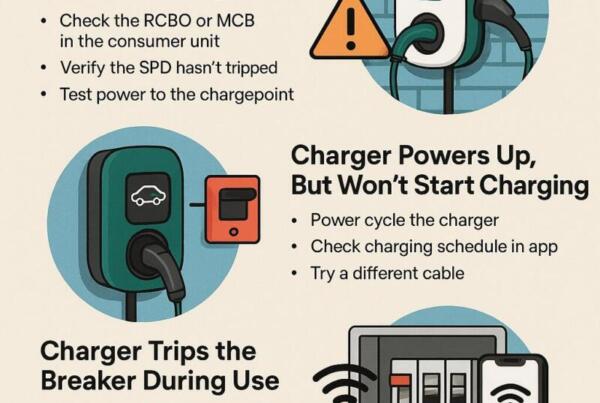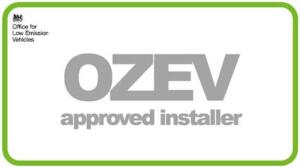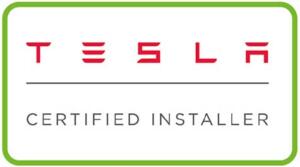Energy Efficiency Tips for Homeowners
With rising utility bills squeezing household budgets, improving your home’s energy efficiency is one of the smartest ways for British homeowners to save. A few simple upgrades and changes in daily habits can significantly reduce your energy usage and carbon footprint.
Wise energy choices also lower the strain on your electrical system, helping avoid common (and dangerous) residential electrical faults. Follow these tips to maximise efficiency while minimizing electrical headaches.
Seal Heat Loss Through Insulation
Heat escaping through poorly insulated walls, roofs and floors wastes money all winter long.
According to the Energy Saving Trust, loft insulation can save a typical UK home up to £590 per year on energy bills.
Cavity wall insulation also provides an excellent return on investment. DIY insulation installation is an option, but you can also call a professional at your whom who can determine optimal insulation levels for your house type and climate zone.
Find and Fix Air Leaks
Gaps and cracks let heated air easily escape while allowing draughts in. Weatherstrip doors and windows and seal noticeable gaps in floors, skirting boards, joints and pipework. DIY sealant guns and adhesive foam strips make this inexpensive to fix. You can also hire professional draught-proofing services.
Pick Efficient Appliances
Choosing appliances with high energy ratings cuts consumption and lowers bills. When older appliances need replacing, look for A+++ rated models. Setting your fridge freezer to the optimal temperature also improves efficiency.
You can use the most energy-hungry appliances like ovens, kettles and hairdryers in spare. Turn off appliances fully rather than leave them on standby.
Energy-Efficient Tips For You:
By combining smart energy usage with proactive electrical maintenance, UK homeowners can save substantially on bills while protecting their families from preventable hazards. Don’t take chances with outdated electrics – make efficiency and safety top priorities.
Follow these tips to minimise your home’s carbon footprint and impact on the environment while trimming your energy costs.
LED Lighting
Switching to LED lighting is the most effective way to slash your lighting bill. LED bulbs use at least 75% less electricity and last up to 25 times longer than old-fashioned incandescents. They’ve become affordable for every socket and lamp.
Wherever possible, swap out all bulbs for Energy Star-rated LEDs. Just this one change can save about £65 per year for the typical UK home.
Thermostat Adjustments
Make sure to turn down your thermostat by 10-15°C when leaving home or going to bed. Having a programmable or smart thermostat makes this easier.
Using thermostatic radiator valves to control individual rooms also helps avoid heating unused spaces. Optimal heating temperatures are around 18°C for occupied rooms and 16°C overnight or when away.
Solar Solutions
Adding solar PV panels allows homeowners to generate their own clean electricity and reduce reliance on the grid. With prices dropping, solar is affordable for more homes, often recouping costs in less than 10 years.
Solar water heating uses the sun to warm water destined for showers, laundry, etc, lowering gas usage. Solar-powered outdoor lighting also displaces electricity demands.
Professional Energy Audit
If you want an in-depth analysis of your home’s efficiency, consider booking a professional energy audit from a certified assessor. This evaluates insulation, appliances, lighting, windows and more. The audit provides custom recommendations for upgrades to help reduce energy waste.
Habits and Behaviour
Even small habit and behavioral changes accumulate significant energy savings:
- Turn off lights and electronics when leaving a room.
- Use appliances efficiently and turn them off rather than leaving them on standby.
- Open curtains to utilize natural daylight.
- Close window coverings at night to insulate.
- Unplug chargers and devices when not in use.
- Run full loads in dishwashers and washing machines, and use economy settings.
- Air dry laundry rather than tumble drying.
- Little savings from enhanced habits really add up.











